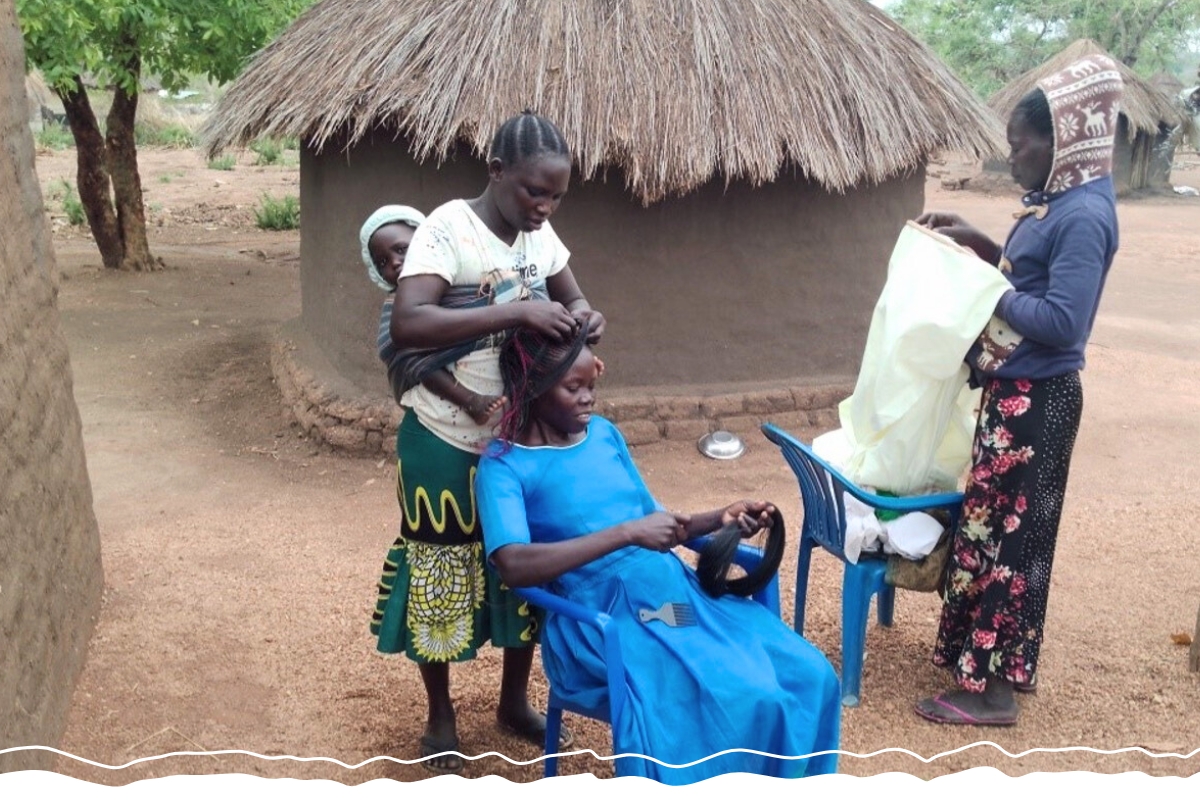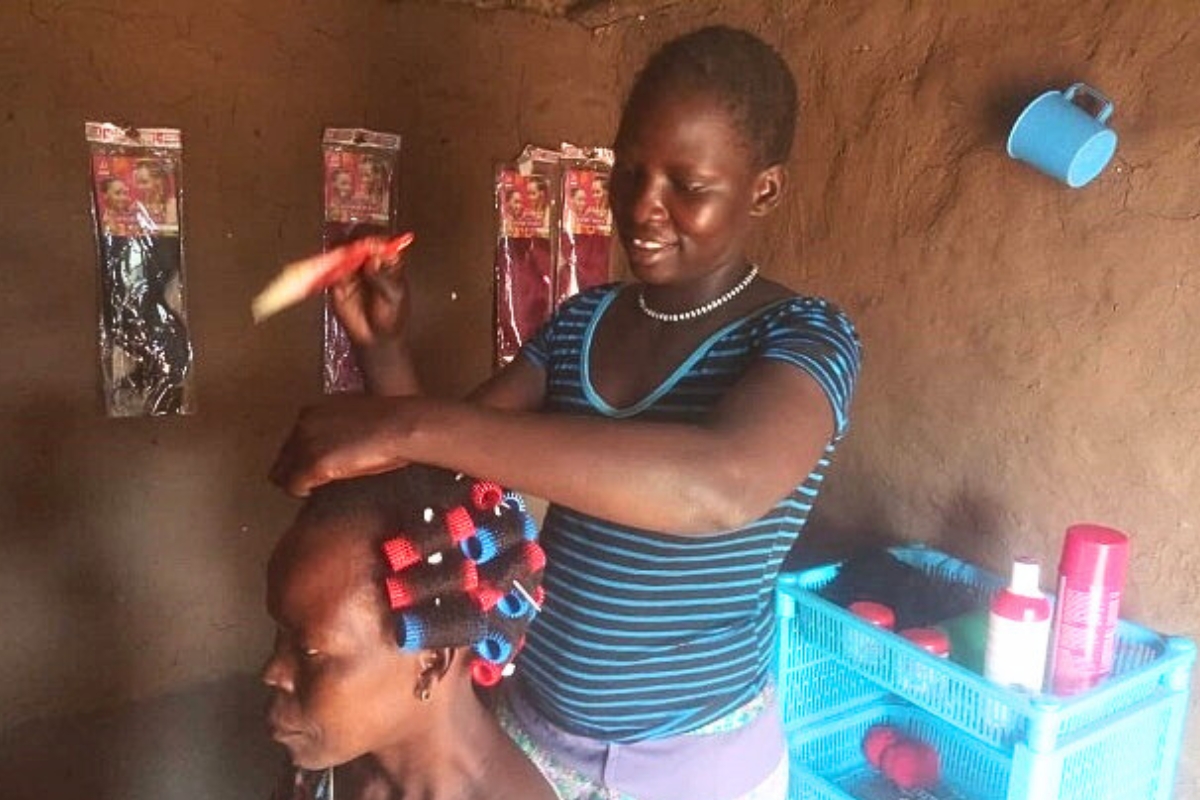This Refugee Mother Braids Hair to Provide for Her Family

As Maneno and her family fled south, they carried nothing but the clothes on their back. She traveled with her husband, their four children, and her two teenaged siblings. Behind them raged the South Sudanese Civil War, a devastating conflict which claimed the lives of nearly 400,000 people, including most of her family.
Maneno and her family found refuge at a settlement called Bidibidi in northwestern Uganda. Once a plot of communal land, Bidibidi quickly grew into one of the world’s largest refugee settlements, housing over 280,000 people within months of its inception.
When she arrived at the camp, Maneno was comforted by the presence of fellow Sudanese; seeing people of her own country made her feel like she wasn’t alone. However, she didn’t know what to expect in a country where she would have to rebuild life from scratch.
Hungry and scared, Maneno and her family anxiously navigated the sea of people until they were permitted entrance. Once inside, they were allocated a plot of land and given tarpaulin sheets with for shelter. It was hardly sufficient, but it was all they had.
As time passed, they transformed their tarpaulin home into a thatched-roof house. But Maneno and her family struggled to find a sense of normalcy. Their heavy emotional burden was compounded by challenges to afford school tuition and construct a proper home. And when the United Nations High Commissioner for Refugees (UNHCR) reduced food rations, the family began to go hungry.

Providing a Service to Her Community
Determined to provide for her family, Maneno launched a hair-braiding business. In South Sudan, traditional hairstyles incorporate local plants that change the hair’s texture. It’s both a symbol of beauty and protection against the harsh sun. But for all her work, Maneno earned less than $3 per day. Something needed to change.
Through her church, Maneno connected with Living Business Education (LBE), a local partner of Partners Worldwide. Eager to grow her business, Maneno attended a business training program hosted by LBE.
Through the training, Maneno developed her skills in business management and finance. And through coaching, she was encouraged to reexamine her business model. Crucially, Maneno realized that she could expand her client base by learning and incorporating Ugandan hairstyles.
Her Future, Transformed
Maneno now earns an average of three times what she did before. During busy seasons, that number climbs even higher, as she serves up to 15 women a day.
Because of her business growth, Maneno transformed her family’s future. Using her hard-earned profits, they’ve rented a plot of land to grow crops to meet the nutritional needs of the family, paid for school tuition and supplies, and re-thatched their roof. They’ve even had enough to save in the village savings association!
Maneno’s family still faces plenty of challenges. As the refugee settlement is housed on a portion of land once deemed unsuitable for agriculture, farming their plot is difficult. And they still struggle to overcome the seasonal trends of hair braiding. But with a firm foundation and a network of partners, they have hope for the future, confident in their abilities to overcome any odds.